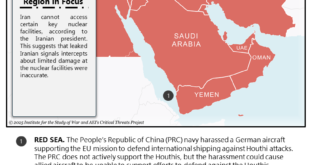 TEHRAN (FNA)- Azerbaijan Republic is sticking to plans to reduce oil exports to the EU and increase shipments to Iran, as the South Caucasus country home to another Russia-influenced frozen conflict in Nagorno-Karabakh seeks to spread the risk.
TEHRAN (FNA)- Azerbaijan Republic is sticking to plans to reduce oil exports to the EU and increase shipments to Iran, as the South Caucasus country home to another Russia-influenced frozen conflict in Nagorno-Karabakh seeks to spread the risk.
In the immediate aftermath of the Georgian crisis, Azerbaijan decided as a temporary move to reduce shipments through Europe’s only direct import route from the energy-rich Caspian Sea the Baku-Tbilisi-Ceyhan (BTC) pipeline–and to increase exports to Russia.
Elhar Nasirov, vice president of Socar, the Azeri state oil company, told the Financial Times on Thursday that Azerbaijan would continue exporting oil to Iran and Russia even though shipments through Georgia had resumed, because of the increased risks in the Caucasus.
“We don’t want to insult anyone but it’s not good to have all your eggs in one basket, especially when the basket is very fragile,” he said.
Separately, Elmar Mammedyarov, the foreign minister, told the Financial Times, “We are trying to be friends with everybody and at the same time acting in accordance with our national interests.”
Unlike Russia-critical Ukraine, Azerbaijan has remained silent over Russia’s military intervention in Georgia despite disruptions caused to its oil business.
With presidential elections coming up on October 15, Azerbaijan’s head of state, Ilham Aliev, is trying to strike a balance between a re-assertive Russia and the West, especially since his country also has a frozen conflict on its own territory.
The majority-Armenian populated region of Nagorno-Karabakh split from Azerbaijan in a civil war in 1991 and remains under Armenian occupation, with Russia and Armenia enjoying close ties.
More than 20 Azerbaijani and Armenian soldiers have been killed in Nagorno-Karabakh since July, an Azerbaijan government official said in claims denied by the Armenian side.
After talks held with Russian President Dmitri Medvedev in Moscow last week, Azerbaijani President Aliev said his country sought predictability in the Caucasus, while his foreign minister said Azerbaijan’s main task was to preserve its independence and sovereignty.
During a visit to Baku last week, the United States’ chief mediator in the region, Matthew Bryza, said it was more important than ever to resolve the dispute after the Russia-Georgia war.
“The recent events in Georgia underscore the importance of a timely resolution of the Nagorno-Karabakh conflict,” he said, adding that the US strongly supports the sovereignty and territorial integrity of Azerbaijan.
Iran has already become the new route for oil exports from Azerbaijan after conflicts disrupted its crude supply through Georgia and Turkey.
In August, Azerbaijan delivered its first oil cargo to the National Iranian Oil Terminals Company for transit purposes, according to Shana.ir.
This followed an explosion by separatist Kurdish rebels disrupted Azeri oil exports through Turkey.
Last month, an official of the state-run Azeri oil company Socar told Bloomberg on condition of anonymity that crude exports through the country’s southern neighbor depended on the status of the world’s second largest pipeline (the BTC pipeline).
“If the BTC is operating, there’ll be no need to export via Iran,” he was quoted as saying.
The pipeline extending from Baku to Supsa transported a daily 90,000 barrels of crude from the Azeri capital to the Georgian port in the Black Sea before the Georgian conflict.
Azeri oil is delivered from Sangachal Terminal in the south of Baku to the Iranian port of Neka in the Caspian Sea. An equivalent amount of crude oil is then supplied by Iran on Khark Island to Azerbaijan’s customers in the Persian Gulf.
 Eurasia Press & News
Eurasia Press & News


